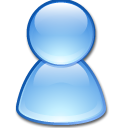,
Acquisition to Tracking and Coasting for Software GPS Receiver
Proc. of the ION GPS Conf., (1999)
Аннотация
The goal the software GPS receiver is to do acquisition and real-time
tracking of GPS C/A codes in software using a receiver front-end,
an Analog-to-Digital converter (ADC) and a PC to do the processing.
To start tracking two parameters need to be obtained from the acquisition
process: the Doppler frequency of the signal, and the sample on which
the C/A code sequence for the satellite begins. Software based acquisition
normally uses 1 msec of data (5 msec for fine frequency resolution),
but the process can take 1 sec or more for weak signals. The C/A
code position shifts over time, and for stationary receivers there
is a linear relationship between the rate of this shift and the Doppler
frequency of the signal. One way to deal with this shift in the C/A
code is to store all samples collected during the acquisition process
so as to start tracking at a point immediately after acquisition,
but this would be prohibitive in both processing time and storage
requirements. A better way is to develop a method to estimate on
which sample the C/A code sequence begins after a period of time.
The linear relationship between the Doppler frequency and the C/A
code shift can be used to predict the code position, and this method
is affective for a period of up to 30 seconds after acquisition.
This linear relationship can also be used to allow C/A code tracking
to coast and immediately resume after a drop out due to interference
or jamming. Since A/D converters clocks often have small variances
from their specified sampling frequencies and this variance leads
to a bias in the amount of C/A code shifting relative to the Doppler
frequency. Because of this, one must test each A/D converter to find
this bias.
